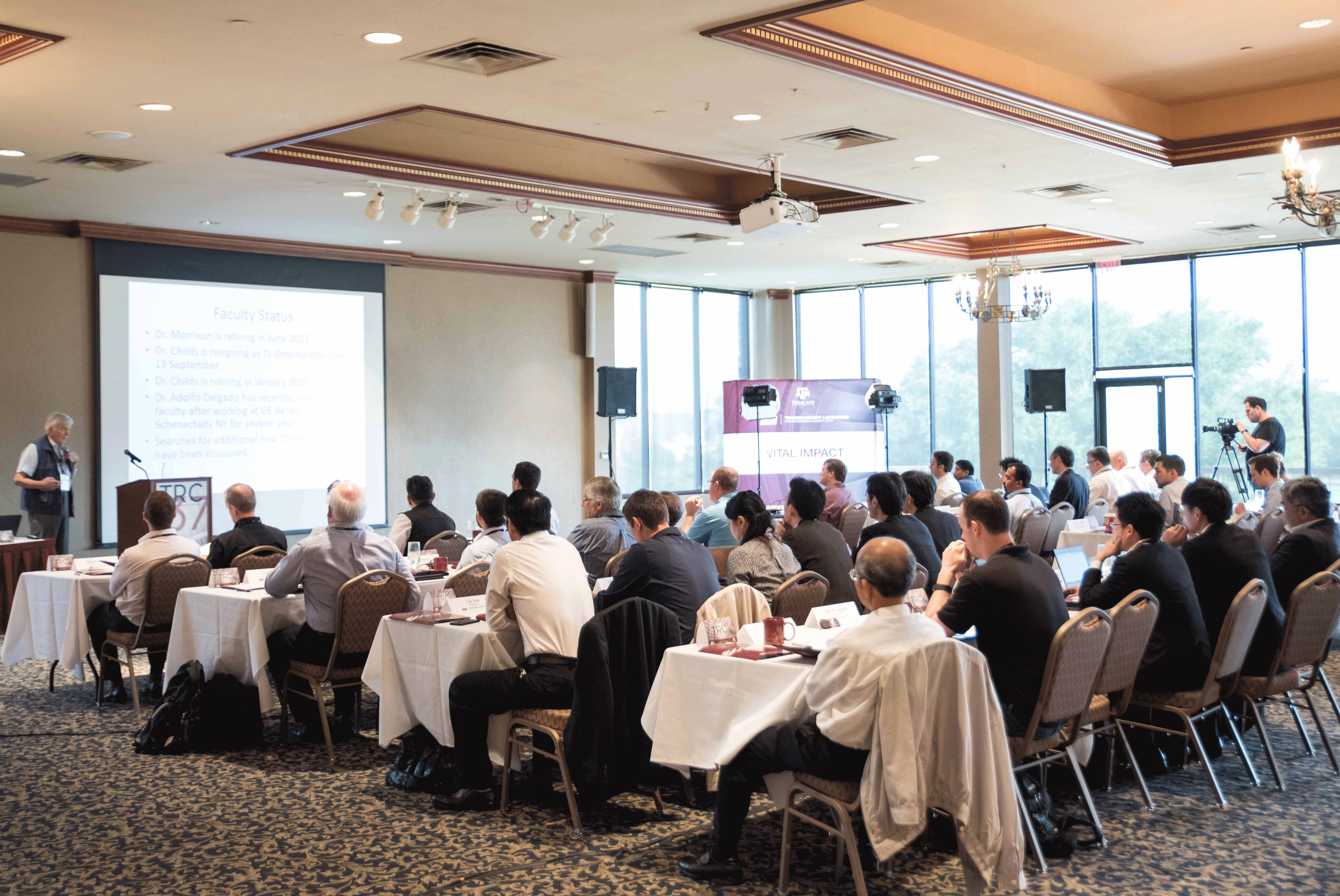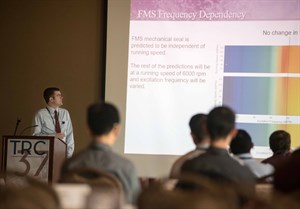
Since 1981, the Turbomachinery Research Consortium (TRC) at Texas A&M University has connected students with major industry leaders through cutting-edge research initiatives.
The TRC is a group of more than 40 companies that contribute annual grants of $25,000 to fund projects that are investigated by 15 to 20 Texas A&M graduate students and faculty in the Turbomachinery Laboratory (Turbo Lab). Each year, the Turbo Lab, a center of the Texas A&M Engineering Experiment Station (TEES), hosts a meeting for the TRC where faculty members and students present research proposals for TRC member representatives, who provide feedback on the projects, then select which proposals receive funding.
“That’s the great part about it—the feedback,” Turbo Lab graduate student Clay Norrbin said. “I’ve presented at TRC for the last three years, and each time after my presentation people from industry approach me and ask if I have tried a certain approach to my project or tell me they have experienced similar issues in the real world. It really helps to give us guidance whether to narrow or expand the scope of the project.”

Twenty-three proposals were presented this year during the meeting held May 31 to June 2 at Pebble Creek Country Club and the Turbo Lab research facility in College Station, Texas. The goal of the proposals is to find answers to questions relating to performance and reliability of turbomachinery—rotating equipment that extracts or adds energy to fluids.
Jeff Moore, an institute engineer at the Southwest Research Institute (SwRI), has been on both sides of the podium at TRC. He said presenting at TRC when he was a student in the Turbo Lab is how he landed his first job out of school.
“Conducting TRC research is a great opportunity for students because it’s like you’re getting your foot in the door without having even knocked, because the industry leaders are coming here to Texas A&M to learn about your research,” Moore said. “The TRC annual meeting allows students to make a positive impression on representatives from member companies. If you have someone from TRC who is helping to pull your resume through the process, you’re going to be a lot more successful.”
Over the last decade, Moore said his group inside SwRI has hired at least seven Aggies, and most of them have come through the Turbo Lab. Aggies are an attractive hire, Moore said, because of the education and experience they gain with the resources at the Turbo Lab.
“Obviously, we’re a very much a hands-on organization in terms of the kind of work we do--design work, research, laboratory,” Moore said. “So, those are the exact skills that the students who come through the Turbo Lab are gaining, doing highly theoretical work, but also going out and getting their hands dirty doing experimental work, validating the models and proving the technology, specifically in the area of turbomachinery. So we do work with design, rotordynamics, combustion, fluid dynamics, controls--all of those skillsets the students are gaining at the lab.”
TRC representatives will review proposal material through the end of the month, and awards will be announced the first week of July. Work on selected projects will begin in September.
